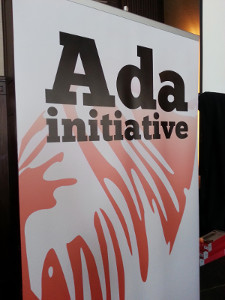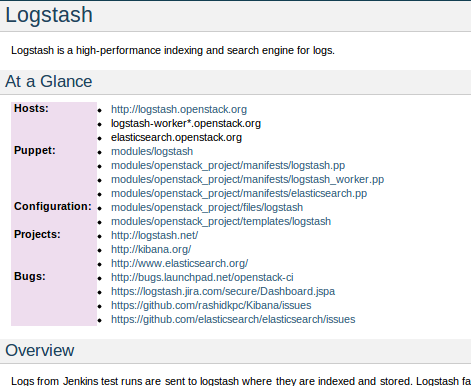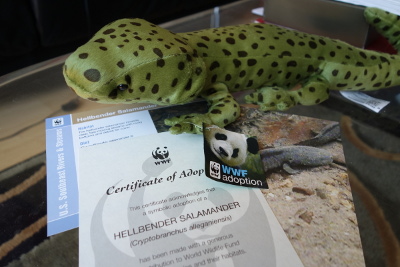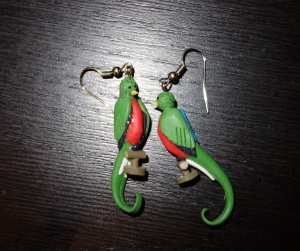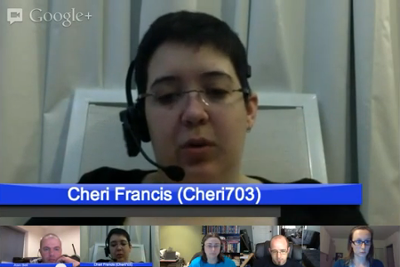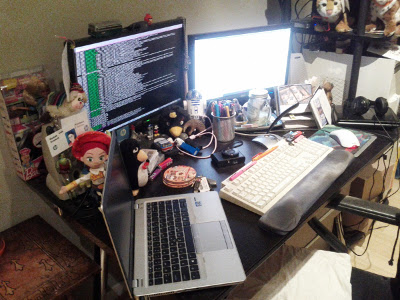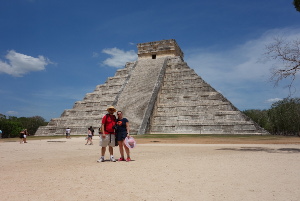This past weekend I attended AdaCamp, put on by The Ada Initiative.
Attending this conference was an interesting move for me. I have a lot of respect for The Ada Initiative, but that’s mostly because they’re doing the offense and defense work that I no longer have the energy or interest to do. I’ve personally steered clear of most public feminist-related discussions and incidents these past few years.
In the past couple of years I’ve been putting a strong focus on growth in my career, both in terms of paid and volunteer open source work. I’ve been supporting fellow women in tech by being a visible role model, helping promote the work of other women I work with (this is mostly what I focus on with Ubuntu Women these days) and with limited, organic mentorship.
I’m keen to continue this trend as I feel much more satisfied in my current role than I was scrambling to learn about the advanced feminist topics and fight to directly change the world. So, my intent with attending this conference was to:
- Learn the concrete tools that others have been using to increase participation in open source for everyone
- Meet other people who share my goals and passion for increasing involvement in our open source projects
- Share my own successes and experiences with open source involvement
To this end…
I was able to meet and speak with several women who were interested in open source but were unsure about where to start, how to get familiar with the tools and expressed concerns about “doing it wrong” in such a public space (specifically how this would impact being accepted into the project and career prospects). My hope is that with personal and in-session discussions I had with them that some of this was dissipated, but it really highlighted some pieces of what we need to do to make sure our projects are welcoming to people who are new to open source (“just toss is up on github” certainly does not!).
I also learned about some of the content of OpenHatch’s Open Source Comes to Campus events and learned that they will soon be publishing the material they use for these “introduction to open source” events they host. It would be great to have these materials to host similar events in the wider community for folks who don’t have access to these campus events (either don’t have the resources to be a student or are no longer students).
During a session about “Quantifying Community Dysfunction” there was talk about community metric tools to track certain contributions so that the effectiveness of targeted efforts (or the opposite – negative incidents) toward improving participation and retention of new contributors could be measured. In this discussion I learned about the Metrics working group and their mailing list and was able to talk about the use of MetricsGrimoire in the OpenStack project for our Development Dashboard. The OpenStack project also has launched OpenStack Insights powered by wikidsmart and documented here and we also have several tools at status.openstack.org, including the Bugday tool that teams have taken to showcasing the results from after successful bug targeting days.
There were a lot of book titles flying around over the weekend, but the one that caught my attention in particular was The Managed Heart: Commercialization of Human Feeling. Open Source projects are often criticized for only valuing direct code contributions (not documentation, project coordination, UI design), but it seems that even those which have succeeded in being inclusive of these contributions still aren’t doing a great job of valuing “emotional work” that contributors put in, whether it be efforts made during collaboration or dispute resolution. The existence of “emotional work” as a thing was actually the first revelation for me, I’ve known that there was a considerable amount of emotional effort that I expend on my work but I never really had a label for it. Even worse, I totally discounted it as a skill even in myself, it was “just how I am,” not something that is inherently valuable and sometimes felt like a liability because I was spending time “dealing with people” rather than “doing Real Work” with my technical peers. I bought the book for my Nook on Sunday night and have been reading through it these past couple of days. It’s really changed my perspective and I hope will lead me to have more compassion for myself and others who do this work in our communities.
Finally, I got to meet some really amazing women this weekend. As much as I love working with my amazing male colleagues, there is always something different about being able to sit down with other women who have shared the experiences that are often difficult to explain to people who haven’t had them. Even better, many discussions I had were advice and solution-driven, “I had $foo experience, here’s how I handled it.” Awesome.


